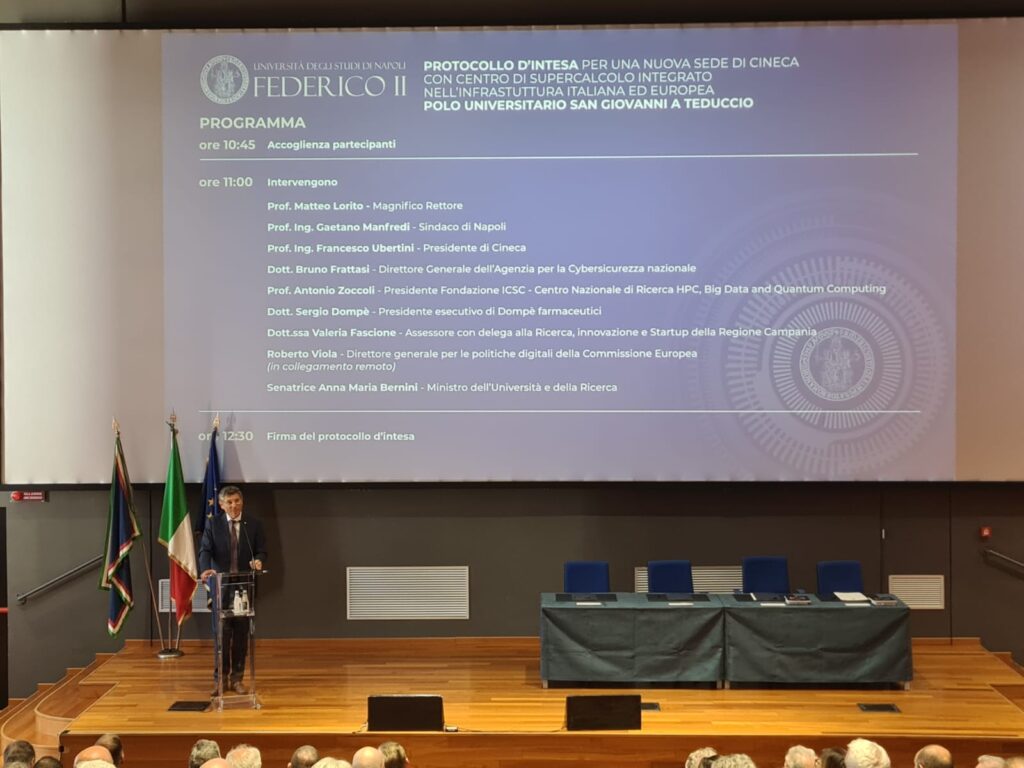The facility will house a new HPC system interconnected to Leonardo, and will represent one of the nodes of the European high-performance computing ecosystem in the Mezzogiorno.
Naples
CINECA, in collaboration with Federico II University and the City of Naples, is expanding its presence in Naples with the creation of a new high-performance computing facility. This facility, which represents a significant investment of about 50 million euros, will house a supercomputing system interconnected to the Leonardo supercomputer. The expansion positions Naples as a crucial node in the European HPC ecosystem in southern Italy.
This development is part of the broader ICSC project, focused on research in HPC, Big Data and Quantum Computing, with a focus on acquiring and developing excellence in HPC technology. CINECA’s new facility aims to support advanced scientific research by providing access to its systems to the academic and industrial research communities. Access to machines as always will be granted based on scientific merit evaluated through international and independent peer review criteria.
The collaboration extends to the Federico II University, which will use the new HPC system for its strategic projects. In addition, the pharmaceutical company Dompé, which has a development center in Naples for designing new drugs using computational and artificial intelligence methods, aligns with this strategy.
A significant aspect of this expansion is the collaboration with the National Cybersecurity Agency (ACN). An agreement has been signed to acquire ACN’s HPC system, which will be dedicated to monitoring the central cyber threat, the HyperSOC, using artificial intelligence and machine learning tools. This collaboration is a key step in strengthening cybersecurity in Italy.
The broader national cybersecurity ecosystem, coordinated by ACN, will have access to the resources of the Naples HPC system for the development of cybersecurity prevention and safeguard methods. This coordinated effort not only strengthens Italy’s position in safeguarding European cybersecurity, confidentiality, and data privacy, but also contributes to the development of a European network of cybersecurity HPC infrastructure.
Overall, this collaborative initiative demonstrates the importance of bringing the public and private sectors together to share investment in the acquisition of a powerful supercomputing system. It represents a strategic move to improve research capabilities, support technological innovation and strengthen cybersecurity measures in Italy and Europe. This expansion positions Naples as a vital hub for high-performance computing in the region, contributing to the development of cutting-edge technologies and research.


